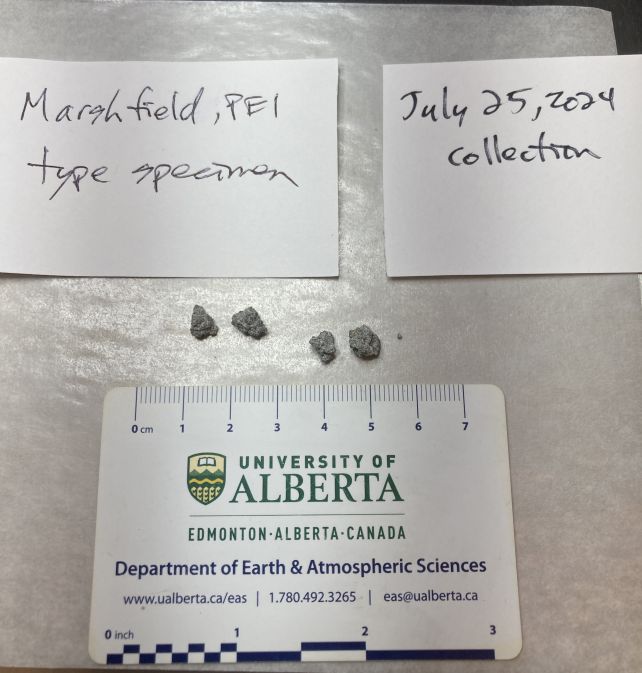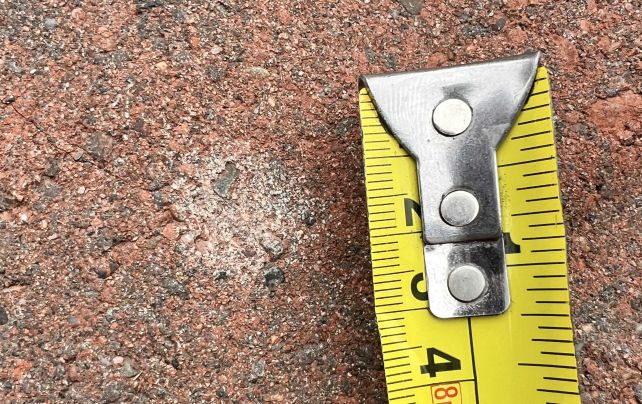With the growing ubiquity of cameras, in our pockets and in our homes, it’s not that strange to capture those moments when space rocks streak across the sky and fall to Earth – but a video recorded on Canada’s Prince Edward Island may be a world first.
In July 2024, a Ring doorbell camera on the Charlottetown home of Joe Velaidum and Laura Kelly captured not just video of a meteorite falling, but the sound of it smacking into the pavement just outside the home’s front door.
It could, says geologist Chris Herd of the University of Alberta, who studied the retrieved fragments, be the first time anyone has ever recorded the sound of a meteorite fall.
“As the first and only meteorite from the province of PEI, the Charlottetown Meteorite sure announced its arrival in a spectacular way,” he says. “No other meteorite fall has been documented like this, complete with sound.”
frameborder=”0″ allow=”accelerometer; autoplay; clipboard-write; encrypted-media; gyroscope; picture-in-picture; web-share” referrerpolicy=”strict-origin-when-cross-origin” allowfullscreen>
The whole unusual nature of the event could easily have passed unnoticed and unremarked. As NPR reports, Velaidum and Kelly had been out walking their dogs when the impact occurred, returning home to find a small mess on their paved front walkway – the gray debris of something that had fallen and shattered.
It wasn’t until Kelly’s neighboring parents told the couple that they had heard a loud noise, and raised the possibility that the shattered remnants may be a meteorite, that Velaidum thought to check his Ring camera.
“The shocking thing for me is that I was standing right there a couple of minutes right before this impact,” Velaidum told CBC News. “If I’d have seen it, I probably would’ve been standing right there, so it probably would’ve ripped me in half.”
It’s very, very common for rocks from space to enter Earth’s atmosphere. What’s less common is for chunks to reach the surface. An estimated 48.5 tons of meteoritic material hits Earth’s atmosphere every day, most of which burns up and vaporizes in the atmosphere as it falls.

Chunks large enough to become fireballs occur at a rate of a few dozen per year, and any that are chunky enough to survive the gauntlet of atmospheric entry tend to fall into the ocean that covers the majority of Earth’s surface.
On checking his camera, Velaidum got in contact with Herd, and collected some small fragments that had survived complete pulverization by bouncing into the grass. Closer inspection also revealed that the impact caused a tiny crater, measuring just 2 centimeters (0.8 inches) across!
Closer examination revealed that the meteorite belongs to a class known as an ordinary chondrite, meteorites that are made up of non-metallic minerals that formed in the early Solar System, and remained relatively unchanged – neither heated sufficiently to melt, nor altered by the differentiation forming planets undergo, whereby their minerals separate and form layers.

Although such meteorites are relatively common, comprising nearly 90 percent of all meteorite retrievals, they are also very scientifically nifty. They can tell us about the dust that was present during the early Solar System when everything was still forming from the leftovers of the cloud of dust and gas that birthed the Sun.
If you’re feeling a little envious, just know that meteors have no regional preference for where they fall, so it really could happen to anyone. You’re probably safe: funnily enough, there have been vanishingly few recorded instances of meteorites hitting people.
And, if no rocks land on your doorstep, there is another option: with all the space dust constantly raining down on Earth, you can try scrounging your roof gutters for microscopic specks. Although it may be a little more difficult to tell if you’re looking at space dust or industrial pollution. So, uh… happy hunting?








Leave a Comment